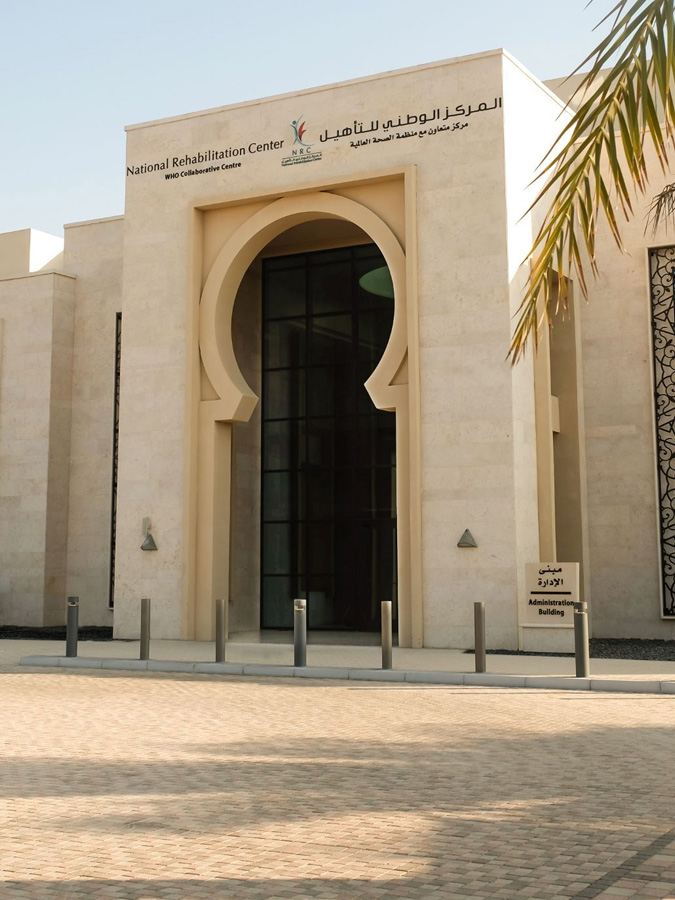Overview
From 26 to 28 February 2025, we are bringing together a diverse group of stakeholders in Abu Dhabi, United Arab Emirates for a critical policy dialogue. The gathering will focus on strengthening the public health response to substance use in the Eastern Mediterranean Region and serve as a hub for collaboration.
Who is attending?
 Participants in the meeting will include:
Participants in the meeting will include:
representatives from ministries of health and the interior;
policy-makers;
WHO collaborating centre directors;
representatives from Africa Centres for Disease Control and Prevention; the Eastern Mediterranean Public Health Network; Global Health Council; Health Promoting Schools Network; Healthy Cities Network; Islamic Advisory Group; Islamic World Educational, Scientific and Cultural Organization; King Salman Humanitarian Aid and Relief Centre (KSrelief); League of Arab States; Organization of Islamic Cooperation; the Regional Youth Council and the World Bank;
international substance use experts;
representatives from UN agencies including the International Organization for Migration; Joint United Nations Programme on HIV/AIDS; United Nations Children’s Fund; United Nations Educational, Scientific and Cultural Organization and the United Nations Office on Drugs and Crime; and
civil society organizations and academic and partner organizations including the European Union for Drug Demand Reduction; International Consortium of Universities for Drug Demand Reduction; International Society of Substance Use Professionals; Islamic Society of Addiction Medicine and the Middle East and North Africa Harm Reduction Association.
Collaborative partners
The event is facilitated by the WHO Regional Office for the Eastern Mediterranean in collaboration with the WHO Collaborating Centre at the National Rehabilitation Centre in Abu Dhabi.
Objectives
We are coming together with a shared purpose.
To orient stakeholders and provide a comprehensive overview of the Regional Director's flagship initiative on substance use.
Define roles and responsibilities to support effective implementation of the flagship initiative.
Develop country plans and initiate the process of tailoring actions to address substance use challenges specific to Member States.
Expected outcomes
We anticipate the meeting will:
launch a series of policy dialogues at the country level to foster ongoing discussion and collaboration;
strengthen evidence-based programmes with a focus on prevention, harm reduction, treatment and care for substance use disorders; and
build a robust regional network to support the implementation of agreed-upon country plans.
Programme
Opening remarks from the regional directors of the WHO Regional Office for the Eastern Mediterranean, the United Nations Office on Drugs and Crime and the National Rehabilitation Centre
Introduction to the regional flagship initiative to accelerate public health action on substance use in the Eastern Mediterranean Region
Orientation about the global and regional situation with substance use and substance use disorders
Presentations and panel discussion on strengthening healthcare systems for substance use and substance use disorders
Presentations and panel discussion on evidence-based policy/regulatory frameworks for substance use and substance use disorders
Presentations and panel discussion on evidence-based interventions for prevention of substance use and substance use disorders and related harms
Presentations and panel discussion on strengthening of the national drug monitoring systems
Group work on identifying priority areas, actions and activities for the substance use flagship initiative on accelerating public health action on substance use
Country presentations on priority areas for the regional flagship initiative to accelerate public health action on substance use
Closing remarks by the Regional Director for the WHO Regional Office for the Eastern Mediterranean Region
Format
To ensure maximum participation and accessibility, participants can choose between virtual and in-person attendance options.
Language
The working language of the meeting will be English, with interpretation provided in Arabic during plenary sessions.
Helpful resources
Resources, guidance and tools for strengthening public health action on substance use





